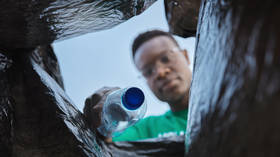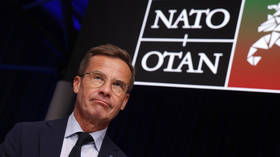Namibia set to prohibit single-use plastics

Namibian Environment Minister Pohamba Shifeta has urged parliament to heed warnings about the dangers of plastic refuse and emphasized the need to ban single-use plastics as quickly as possible.
“Single-use plastics are not worth destroying our Earth. Smarter choices need to be made when it comes to buying and selling single-use plastic products," Shifeta told lawmakers earlier this week, saying the ban should be in place by 2026 “or earlier.”
Shifeta explained that huge amounts of plastic waste are ending up in the oceans and accumulating in food chains through seafood consumed by humans. He said the ban will reduce the amount of plastic in the environment and "encourage individuals and businesses to adopt more sustainable practices.”
Namibia has also banned the export of unprocessed lithium and other critical minerals including cobalt, manganese, and graphite. The decision comes as the government attempts to capitalize on rising demand for minerals used in renewable energy technology like those used in the manufacture of electric vehicles.
South Africa’s former statistician-general, Pali Lehohla, told RT on Friday that Namibia’s vast resources should stay in the region and guarantee economic benefits for future generations there.
“The benefits for Namibia are limitless — and Namibia being a neighbor to South Africa and Zimbabwe, it is clear that the region can be poised for something much bigger than ever imagined in the past, particularly in the context of new energy systems,” he said.
According to the United Nations Environment Programme (UNEP), the African continent contains 30% of the world’s mineral reserves, including 8% of the world’s natural gas and 12 % of the world’s oil reserves.











